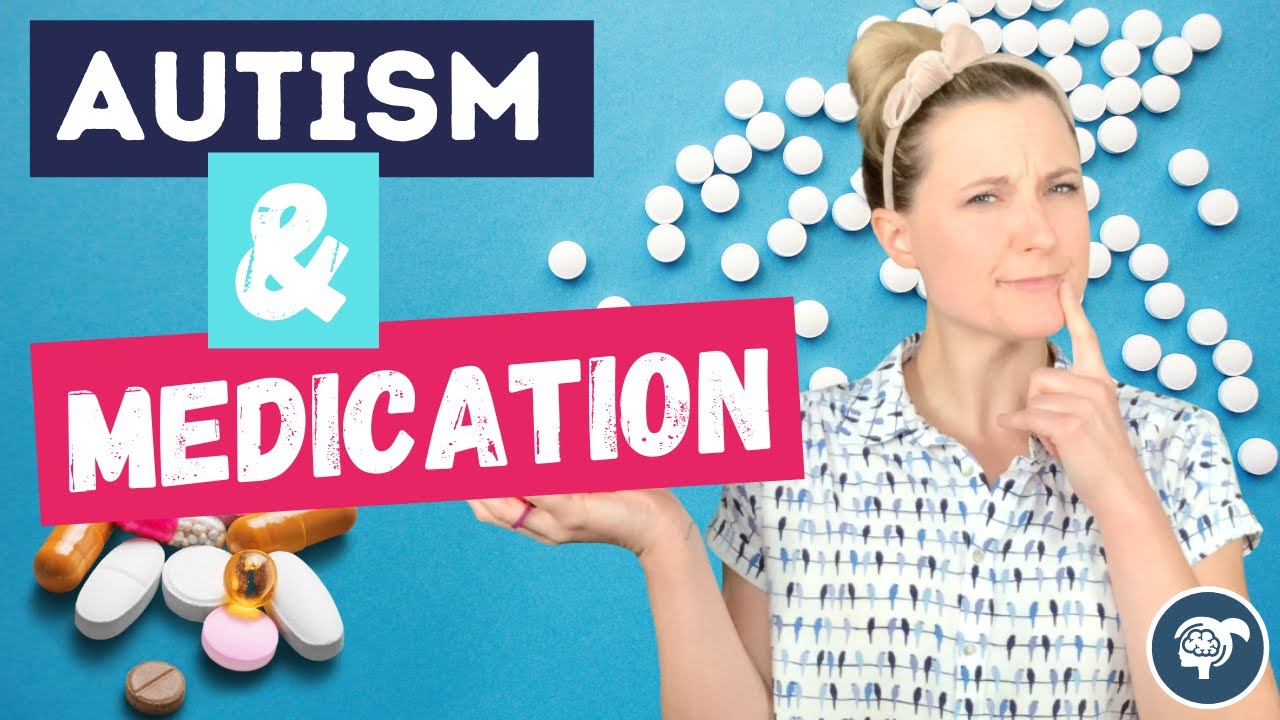Understanding Autism Medication
When it comes to navigating autism medication for adults, understanding the latest pharmacological advances and innovative therapies is crucial. Both areas are instrumental in managing symptoms and improving the quality of life for individuals with autism.
Pharmacological Advances
The landscape of pharmacological treatments for autism is evolving with groundbreaking advancements. One notable development is the introduction of drugs like Nirsevimab and Balovaptan.
- Nirsevimab: This medication impacts gene expression and cell division, showing promise in targeting specific biological pathways involved in autism.
- Balovaptan: Research indicates that Balovaptan can enhance social interaction by approximately 15% in individuals with autism. It works by modulating the vasopressin receptor, which is involved in social behavior.
Here’s a quick comparison of key medications:
| Medication | Function | Reported Benefit |
| Nirsevimab | Influences gene expression and cell division | Promising in targeting biological pathways |
| Balovaptan | Modulates vasopressin receptor | Improves social interaction by ~15% |
These pharmacological advances reflect ongoing efforts to address core symptoms of autism, especially concerning social interaction and biological underpinnings.
Innovative Therapies
In addition to pharmacological treatments, innovative therapies have emerged, focusing on less conventional approaches with potential benefits for individuals with autism.
Hyperbaric Oxygen Therapy (HBOT): Pressure chamber therapy, also known as HBOT, has shown potential in improving social skills and brain function. This therapy involves increasing oxygen levels in the blood to reduce neuroinflammation and enhance brain activity.
Furthermore, the role of validated biomarkers in autism treatment is gaining attention. Dr. Shafali Spurling Jeste highlights the importance of biomarkers, which could standardize and facilitate the development of more targeted therapies. Initiatives such as the Autism Biomarkers Consortium for Clinical Trials are pivotal in this regard.
These innovative approaches, combined with advances in pharmacology, are essential in the ongoing journey to find effective autism medication for adults. Understanding these options allows caregivers and healthcare providers to make informed decisions tailored to individual needs.
Biological Approach to Treatment
To provide a comprehensive understanding of autism medication for adults, it’s important to explore the biological approach to treatment. This approach includes examining biomarkers in autism and understanding the genetic and environmental factors contributing to the condition.
Biomarkers in Autism
Biomarkers play a crucial role in autism treatment by offering measurable biological features that provide key information about the clinical condition. These biomarkers help identify specific clinical endpoints and guide personalized treatment options.
Dr. Shafali Spurling Jeste emphasizes the need for validated biomarkers to make significant progress in autism treatment. Initiatives like the Autism Biomarkers Consortium for Clinical Trials aim to standardize the use of biomarkers and facilitate the development of targeted therapies.
| Key Biomarkers | Role in Autism |
| Genetic Markers | Identify autism susceptibility genes |
| Neuroimaging (fMRI and DTI) | Assess brain structure and function |
| Blood Tests | Analyze immune response and metabolic profile |
Genetic and Environmental Factors
Genetic factors play a key role in the development of Autism Spectrum Disorder (ASD). Multiple genes are associated with disease risk, and monogenic cases provide insight into the genetic basis of ASD. Conditions like fragile X syndrome and tuberous sclerosis are associated with a higher risk of ASD.
Environmental factors also contribute to ASD. Maternal exposure during pregnancy to substances like specific medications, environmental pollutants, and infections may increase the risk of ASD by impacting fetal brain development.
| Factor Type | Description |
| Genetic Factors | Mutations in specific genes (e.g., fragile X syndrome) |
| Environmental Factors | Maternal exposure to pollutants, medications, and infections during pregnancy |
Advances in diagnostic methods for ASD include genetic testing, neuroimaging techniques like fMRI and DTI, and innovative approaches such as artificial intelligence for early screening. These advances improve the accuracy and efficiency of diagnosing ASD.
The biological approach to autism treatment continues to evolve with ongoing research and development. Understanding the roles of biomarkers, as well as genetic and environmental factors, is essential for developing effective therapies and personalized treatment plans.
Behavioral Therapies for Autism
Behavioral therapies are essential components in managing autism, offering structured interventions that can significantly improve quality of life.
Cognitive Behavioral Therapy
Cognitive Behavioral Therapy (CBT) can be effective in helping autistic adults manage anxiety, recognize emotions in others, and cope better in social situations. A 2019 trial suggests its benefits. CBT helps individuals identify negative thought patterns and replace them with more positive and realistic thoughts.
Social Skills Training
Social Skills Training (SST) is beneficial for autistic adults, especially when combined with other approaches like CBT, as per a 2023 study. SST helps individuals develop social skills, understand humor, and read emotional cues. Activities in SST may include role-playing, social stories, and practicing social interactions in safe environments.
Sensory Integration Therapy
Sensory Integration Therapy (SIT) aims to even out an autistic individual’s response to sensory stimulation. It is usually conducted by an occupational therapist and includes activities like drawing in sand or jumping rope. SIT can help individuals manage sensory sensitivities and improve their ability to process sensory information.
| Activity | Benefit |
| Drawing in sand | Enhances fine motor skills and sensory processing |
| Jumping rope | Improves coordination and body awareness |
Occupational Therapy
Occupational Therapy (OT) focuses on teaching fundamental skills needed in everyday life. For adults, OT emphasizes developing independent living skills such as cooking, cleaning, and handling money. OT helps individuals lead more independent and fulfilling lives by improving daily functioning abilities.
Speech Therapy
Speech therapy assists autistic individuals in improving their verbal skills to enhance communication. This therapy can help children improve speech rate and rhythm and assist adults in effectively communicating their thoughts and feelings. Speech therapists might use tools like picture boards and electronic communication devices in their sessions.
Applied Behavior Analysis
Applied Behavior Analysis (ABA) is widely used in the treatment of autism spectrum disorders (ASD). ABA helps improve social interactions, communication skills, and learning. This structured approach uses positive reinforcement to encourage desired behaviors and can be highly effective in both children and adults.
Behavioral therapies serve as a cornerstone in managing autism, providing essential support and skills development to improve daily life activities and overall well-being.
Medication Options for Autism
FDA-Approved Drugs
For the treatment of autism spectrum disorder (ASD), the FDA has approved two medications specifically aimed at managing certain associated behaviors, particularly irritability. These medications are:
- Risperidone (Risperdal)
- Aripiprazole (Abilify)
These medications fall under the category of atypical antipsychotics and are primarily used to treat irritability, which can manifest as aggression, tantrums, and self-injurious behavior. While these medications are approved for use in children, their use in adults needs to be closely monitored by a healthcare provider.
| Medication | Brand Name | Approved Use |
| Risperidone | Risperdal | Irritability in children with ASD |
| Aripiprazole | Abilify | Irritability in children with ASD |
Off-Label Medications
Many other medications used to treat symptoms of autism are considered off-label, meaning they are not specifically approved by the FDA for this use but have shown benefits in clinical trials. Some of these medications include:
- Selective Serotonin Reuptake Inhibitors (SSRIs): These are commonly used to treat anxiety and depression, which are often co-occurring in individuals with autism. Examples include fluoxetine and sertraline.
- Stimulants: Medications like methylphenidate are used to address symptoms of hyperactivity and impulsivity that may be present in individuals with ASD.
- Anticonvulsants: Used to stabilize mood and reduce irritability, examples include valproic acid and lamotrigine.
| Medication Class | Examples | Common Uses in ASD |
| SSRIs | Fluoxetine, Sertraline | Anxiety, Depression |
| Stimulants | Methylphenidate | Hyperactivity, Impulsivity |
| Anticonvulsants | Valproic Acid, Lamotrigine | Mood Stability, Irritability |
It’s essential for individuals taking off-label medications to do so under the supervision of a healthcare professional. This ensures that the medications are used safely and effectively and that any potential side effects are closely monitored.
Research indicates that combining medication with behavioral therapies can be particularly effective in managing symptoms of autism. This combination approach allows individuals to benefit from the strengths of both pharmacological and non-pharmacological treatments. Frequently, the overall goal of medication is to reduce specific symptoms enough so that the individual can better engage in learning and communication activities.
In summary, while FDA-approved drugs like risperidone and aripiprazole target irritability in autism, off-label medications can address a range of other symptoms. Consulting with healthcare providers will provide the best framework for understanding and managing these medication options for adults with autism.
Finding the right support for adults with autism goes beyond medication—comprehensive therapy plays a key role in long-term success. If you’re searching for the best ABA clinic near me, look for providers that offer personalized programs to improve communication, behavior, and daily living skills.
Move Up ABA is Maryland’s leading provider of ABA therapy, offering personalized support for adults with autism beyond medication. Their expert team focuses on building essential life skills, improving communication, and fostering independence through evidence-based techniques.
If you’re looking for a dedicated team to help navigate autism care with confidence, contact Move Up ABA today and take the next step toward a brighter future.
Risks and Considerations
When dealing with autism medication for adults, understanding the potential risks and considerations is crucial. Individuals and their families must be informed about the side effects of medications and adopt a collaborative approach to ensure safe usage.
Side Effects of Medications
Medications used for treating symptoms of autism can carry various side effects. The type and severity of these side effects can vary depending on the specific drug.
Second-Generation Antipsychotics
Second-generation antipsychotics like risperidone and aripiprazole are commonly prescribed to manage irritability in individuals with autism. However, they come with side effects.
- Risperidone:
- Increases appetite and weight gain
- Risk of developing type 2 diabetes and cholesterol problems
- Can increase the production of prolactin, causing breast swelling and interfering with bone-building
- Aripiprazole:
- Does not elevate prolactin levels
- Side effects may include akathisia (restlessness) and dyskinesia (movement disorder)
Selective Serotonin Reuptake Inhibitors (SSRIs)
SSRIs can be used to address anxiety and repetitive behaviors. Typical side effects include:
- Nausea
- Drowsiness
- Insomnia
- Sexual dysfunction
Stimulants
Stimulants are often used to treat symptoms of attention-deficit/hyperactivity disorder (ADHD) within the autism spectrum. Common side effects include:
- Reduced appetite
- Weight loss
- Sleep disturbances
- Increased heart rate
Alpha-2 Adrenergic Agonists
These medications help reduce hyperactivity and improve attention. Potential side effects include:
- Drowsiness
- Fatigue
- Low blood pressure
| Medication Class | Common Side Effects |
| Second-Generation Antipsychotics | Weight gain, increased appetite, elevated prolactin, diabetes risk |
| SSRIs | Nausea, drowsiness, insomnia, sexual dysfunction |
| Stimulants | Reduced appetite, weight loss, sleep disturbances, increased heart rate |
| Alpha-2 Adrenergic Agonists | Drowsiness, fatigue, low blood pressure |
Collaborative Approach for Safe Usage
Ensuring the safe and effective use of autism medication involves close collaboration between families and healthcare providers. Following a collaborative approach is key to optimizing treatment outcomes.
- Informed Decision Making:
- Families and individuals should stay informed about the potential risks and benefits of medications.
- Regular monitoring of the effects of any medication is crucial.
- Trial Basis:
- Healthcare providers often prescribe medications initially on a trial basis to gauge their effectiveness.
- Dosage Adjustments:
- Finding the most suitable treatment plan may require adjustments in dosages or combinations of medications.
- Certain medications may take time to show beneficial effects, necessitating careful tracking of changes and side effects.
- Regular Monitoring:
- Continuous monitoring with periodic lab tests is recommended, especially for medications like risperidone, which may cause significant long-term side effects.
By adopting a collaborative, informed, and cautious approach, families and healthcare providers can work together to mitigate risks and enhance the benefits of medication for adults with autism.
Monitoring and Effectiveness
Trial Basis for Medications
Medications for managing symptoms of autism in adults are often started on a trial basis. Healthcare providers use this approach to assess how well the medication works and to monitor any side effects. This initial phase is crucial for tailoring the medication plan to each individual’s needs.
| Aspect | Details |
| Evaluation Period | Typically lasts several weeks |
| Assessment Focus | Efficacy and side effects |
| Monitoring | Regular check-ins with healthcare provider |
Dosage Adjustments and Combinations
Finding the right medication for autism often involves adjusting dosages and experimenting with combinations of different medications. This process requires careful monitoring and collaboration between the patient, their family, and healthcare providers.
| Process | Detail |
| Initial Dosage | Starting with a low dose |
| Adjustment Phase | Incremental changes based on response |
| Combination Trials | Using multiple medications if needed |
| Timeline | Several weeks to months |
Family and Healthcare Collaboration
Effective management of autism medication relies heavily on collaboration between families and healthcare providers. This partnership ensures that the medication plan is safe and effective.
- Communication: Regular updates between the family and healthcare provider about the individual’s response to the medication.
- Education: Families should stay informed about the medications being used, including potential side effects and benefits.
- Monitoring: Close observation for any changes in behavior or health that might indicate side effects or the need for dosage adjustments.
- Support: Families should provide emotional and practical support to help the individual adhere to the medication plan.
| Role | Responsibility |
| Family | Monitor and report changes, provide support |
| Healthcare Provider | Adjust dosages, prescribe combinations, educate families |
By working together, families and healthcare providers can navigate the complexities of autism medication, ensuring that the individual receives the most effective and safe treatment.
Sources:
https://www.nichd.nih.gov/health/topics/autism/conditioninfo/treatments/medication-treatment
https://pmc.ncbi.nlm.nih.gov/articles/PMC11163702/
https://www.autismspeaks.org/expert-opinion/behavioral-medication-side-effects
https://raisingchildren.net.au/autism/therapies-services/therapies-interventions/medications-asd
https://www.autismspeaks.org/medications-autism
https://www.healthline.com/health/autism-treatment
https://www.autismawareness.com.au/navigating-autism/medication-and-autism




